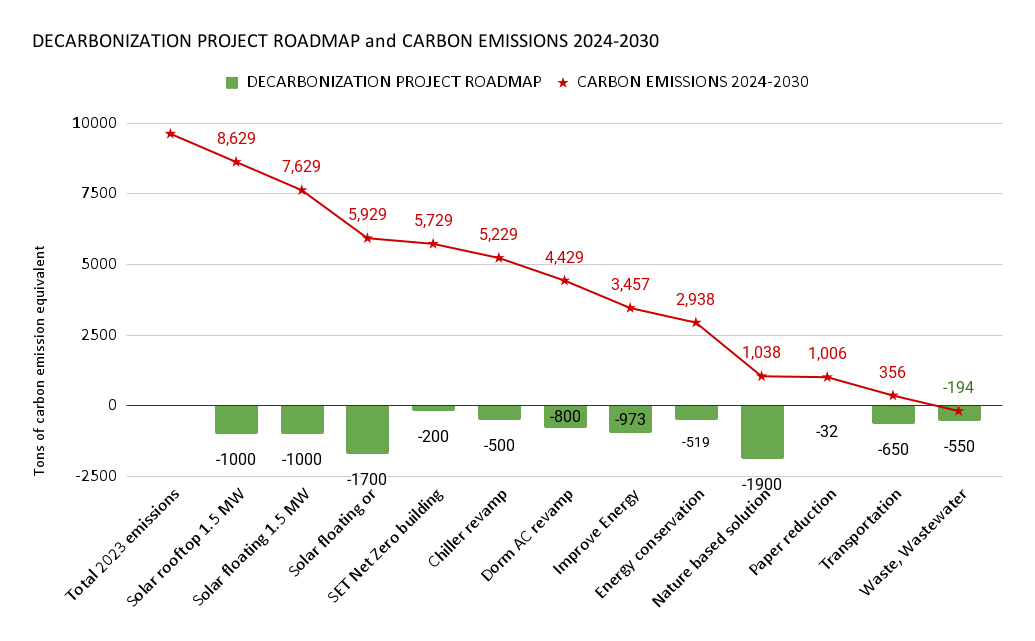AIT's Net Zero Campus: A Leap Towards Carbon Neutrality.
In 2003, AIT collaborated with the Thai Government’s Ministry of Natural Resources and Environment to create the Queen Sirikit Arboretum and Botanical Garden. Climate change, our paramount challenge, led to global commitments like the Paris Agreement, COP26, and COP27.
AIT’s responded to the immediate need by committing to foster an all-encompassing botanical garden campus, combating both climate change and biodiversity loss. AIT envisions achieving Net Zero status by 2030, with reference to an institute-wide campus plan concept note endorsed by the AIT Executive Committee on 19 Dec 2022 and by the Board of Trustees of AIT, highlighting its commitment to sustainability. By integrating the project with its earlier campus plans, AIT takes a significant step forward with a pledge toward 100% renewable energy and exemplifying how institutions can proactively contribute to a healthier planet.
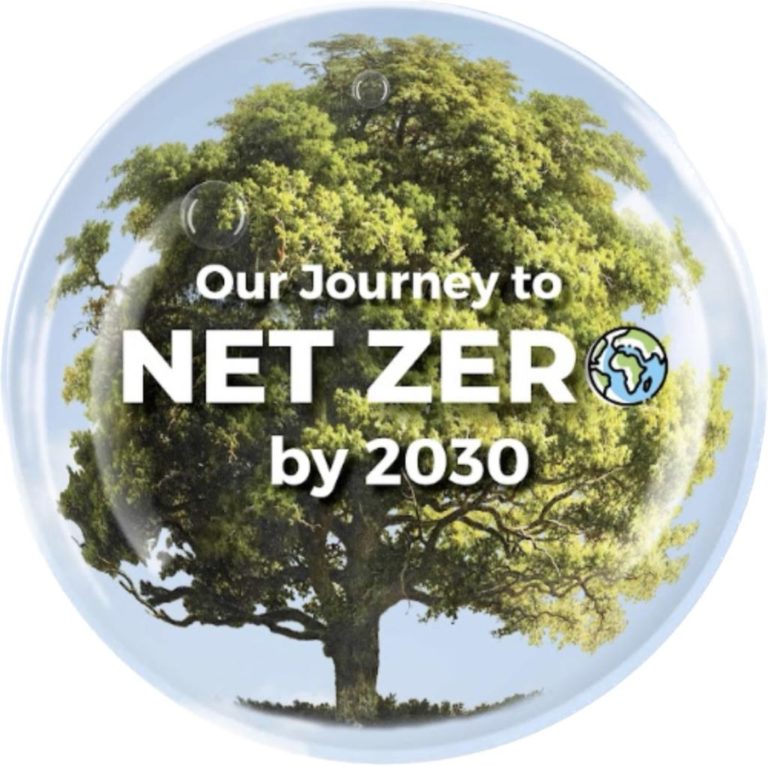
AIT Sustainability Policy Statement
As per the AA-1-2-9 “AIT Sustainability Policy”, published on 8 Dec 2021
AIT’s vision and definition of sustainability encompasses fostering a transition towards sustainability while reflecting a balance of economic, environmental, and socially responsible values through education, knowledge generation, translating knowledge into practice, and practicing those sustainability ideals in its day-to-day and strategic operations.
Therefore, AIT’s goals are to become low carbon, resource recycling, 100% renewable energy powered, green, and environmentally friendly educational hub and practice them. This considers not only what goes in AIT but also its sustainability footprints elsewhere. To operationalize these vision and goals, AIT’s sustainability policy elaborated here provides a set of rules and guidance to integrate sustainability principles in its academic, research, administration, campus development, and engagement with stakeholders.
Campus Carbon Emissions
| Scope | 2024 tCO2e/year |
| Scope-1 | 621 |
| Scope 2 | 5281 |
| Scope-3 | 3319 |
2024 tCO2e/year | 9221 |
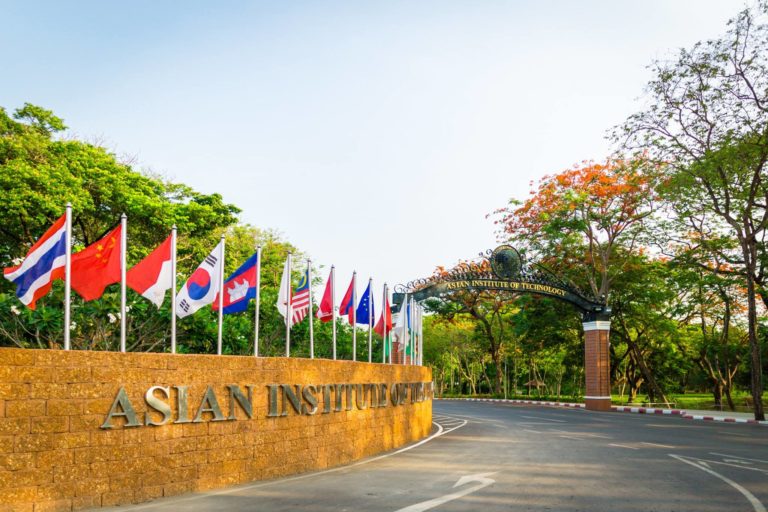
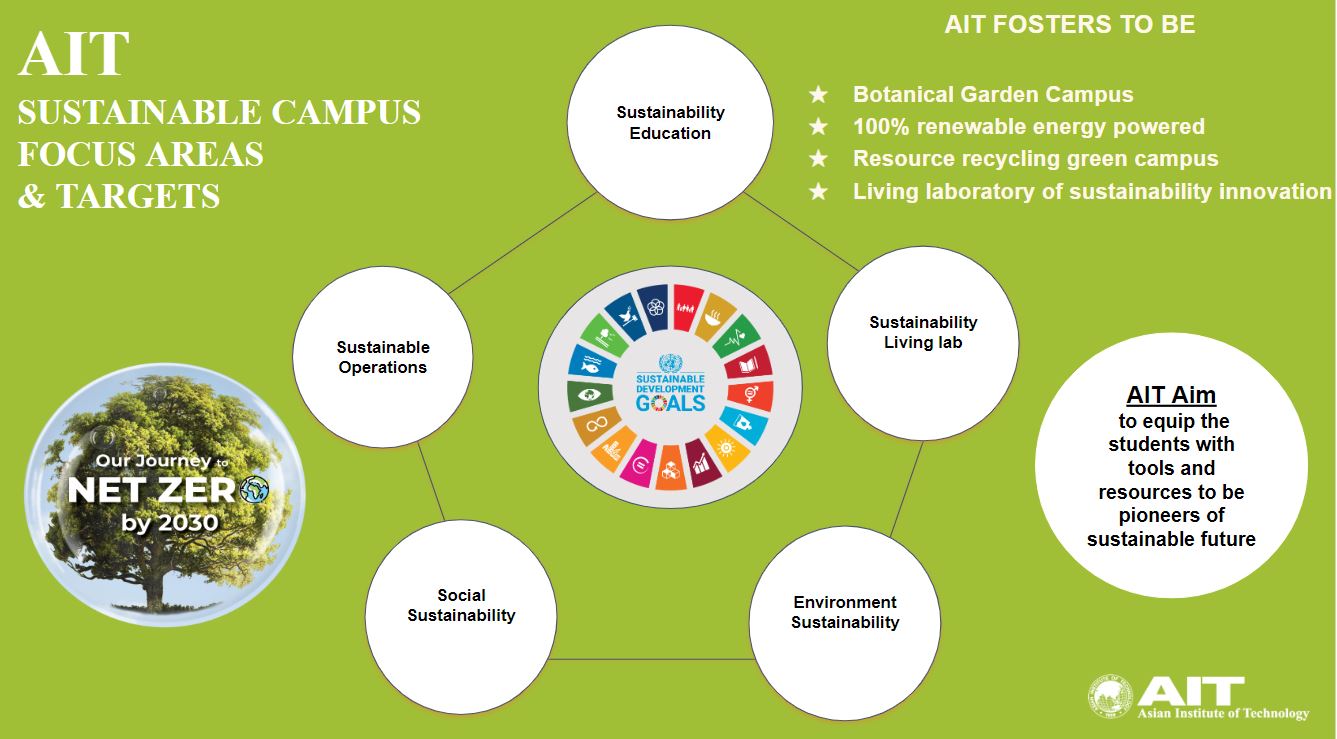
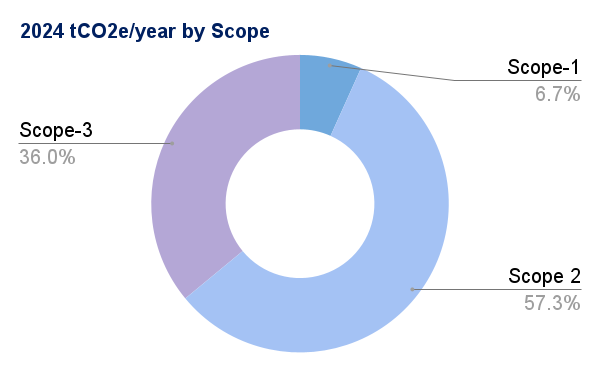
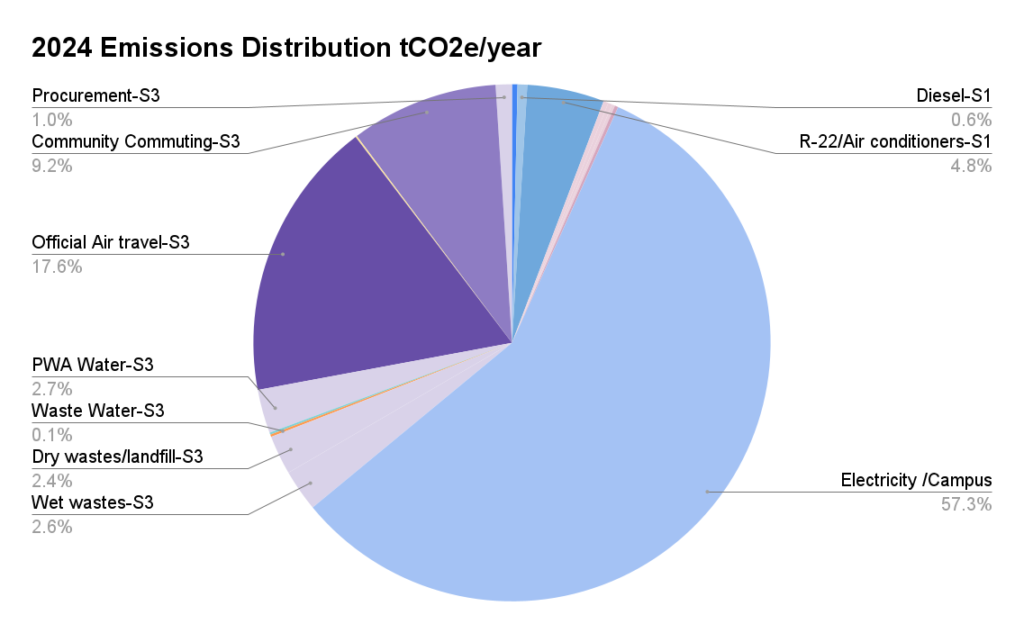
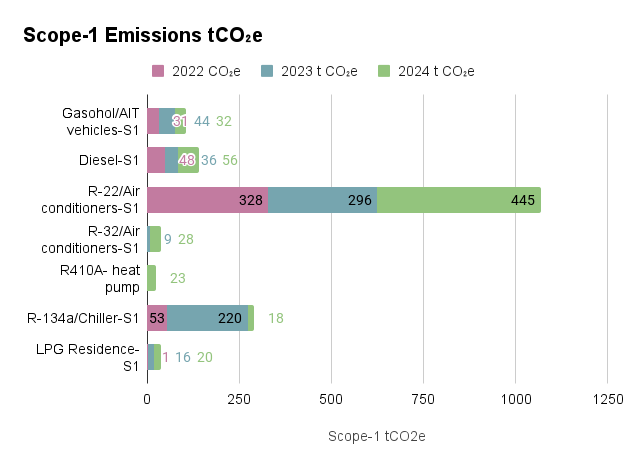
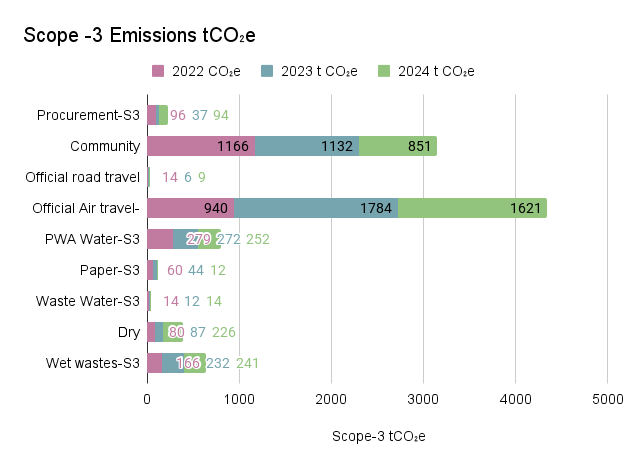
AIT Campus Emissions Comparison 2022 to 2024 | ||||
| Scope of emissions | 2022 tCO2e/year | 2023 tCO2e/year | 2024 tCO2e/year | 2023 to 2024 % Variation |
| Scope -1 | 462 | 620 | 621 | 0.17% |
| Scope -2 | 5091 | 5,404 | 5,281 | -2.27% |
| Scope -3 | 2814 | 3,605 | 3,319 | -7.94% |
| Total | 8367 | 9,629 | 9,221 | -4.24% |
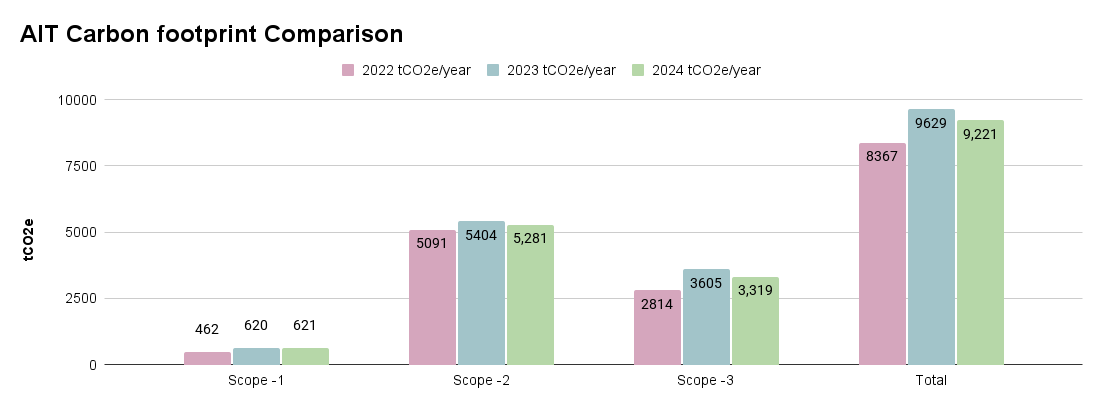
Carbon Emission Reduction Road Map
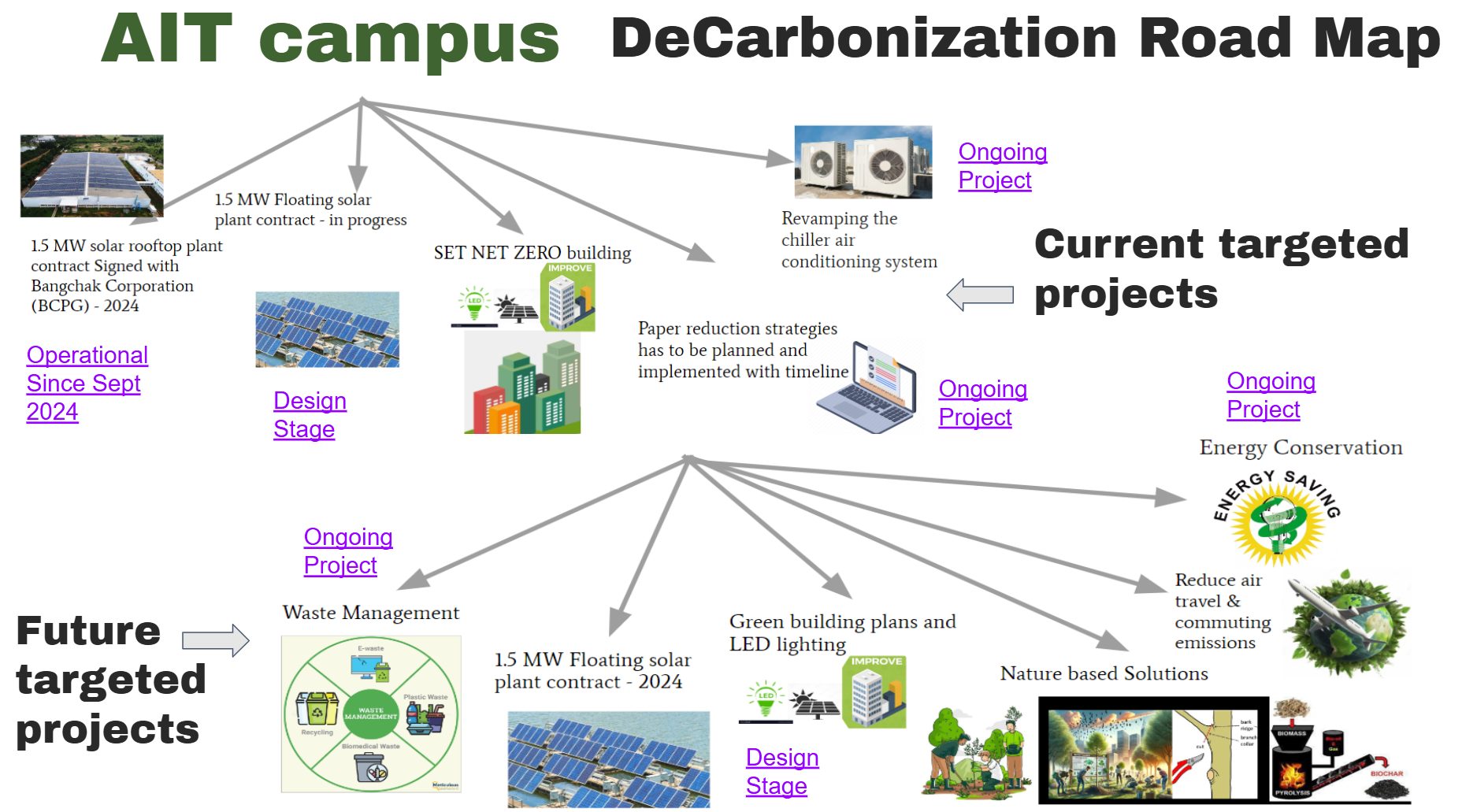
NET ZERO Campus vision by 2030
The Asian Institute of Technology is resolutely committed to the transformation of its campus into a “Botanical Garden Net Zero Campus” by the year 2030. To realize this ambitious objective, AIT has meticulously devised a climate action plan in 2024 based on 2023 emissions, outlining specific strategies geared towards achieving the net-zero status. The immediate plan encompasses several key projects, including the 1.5 MW Solar rooftop Project, which has already secured a contract and is projected to become fully operational by September 2024. Additionally, discussions are underway for the implementation of a 1.5 MW solar floating project covering major area on the AIT reservoir, which will enable AIT to be mostly Renewable Energy-sourced campus, with plans to develop energy storage system to be a 100% renewable energy powered campus. For more details click here. Concurrently, Projects we are focusing on the ongoing evaluation and cost analysis for improving the chiller plant efficiency , and the transition to LED lighting in all academic buildings to curtail energy consumption and minimize greenhouse gas emissions. These initiatives are slated to commence in 2024. We are also focusing on remodeling the waste management system of the campus, with an objective to minimize the campus waste going to landfill. This plan is not just a one-time effort but an ongoing commitment to environmental stewardship. By continually seeking opportunities for waste reduction, recycling.
Furthermore, the institution is placing considerable emphasis on incorporating green spaces both within and around its buildings, with the dual purpose of mitigating greenhouse gas emissions and facilitating a complete shift to renewable energy sources. In alignment with its vision of establishing a Botanical Garden Net Zero Campus, AIT is actively exploring nature-based solutions through the introduction of new plantations, effective forest management, and the utilization of campus resources for biochar production. Moreover, this approach seeks to enhance overall efficiency by promoting the adoption of sustainable practices such as reducing paper usage, embracing environmentally-friendly procurement methods, and advocating eco-conscious travel alternatives.
